It’s a common question… “Is meditation or hypnosis better?”
The truth is, they’re both excellent and proven practices.
But our next response is…
Hypnosis is the new black.
And just like the color black, it can be “matched” with almost anything.
It’s outrageously versatile and never out of fashion.
In fact, the full list of things you might use hypnosis for would require another whole (and lengthy!) article.
You probably already know about some of these, like breaking bad habits, managing pain, and weight loss, relieving stress and anxiety, and so on.
According to some people, though, you can achieve some of the same results using meditation.
While it’s true that hypnosis and meditation do have elements in common, it’s their differences that really make hypnosis stand out.
So how are they distinct from each other?
Is Meditation Or Hypnosis Better: What’s The Difference?
Here’s a quick summary:
Meditation is a technique in which you find somewhere quiet to focus your mind and try to relax.
Hypnosis is a technique where you find somewhere quiet to relax and focus your mind. Once you’re relaxed and focused, you can start to address issues you want to work on.
Meditation can help you to relax and focus, but hypnosis takes things a whole lot further.
Once you’re in a hypnotic trance, it’s possible to communicate with your unconscious mind.
That’s when you can make suggestions and use hypnotic themes to make measurable life changes from the inside out.
This can be accomplished by letting someone else hypnotize you, or it can be done using self-hypnosis. Either way is just as effective.
Meditation is about getting anchored in the here and now. It’s a form of introspection so that you can examine your thoughts and feelings and hopefully put them into perspective.
While hypnosis can do the same thing, it’s also about looking deeper, tapping into your unconscious, where all your memories, creativity, emotions, beliefs and instincts are stored.
When you’re able to access those, there’s almost nothing you can’t achieve.
The other big difference between hypnosis and meditation is the fact that hypnosis has 3 separate stages, which are as follows:
There’s no question that meditation can help you calm your mind, get relaxed, and collect your thoughts. But hypnosis and self-hypnosis offer you something substantially more.
They give you a powerful way to:
- De-stress and overcome fear
- Access insights
- Unleash your creativity
- Find positive solutions even in times of hardship
- Reach more of your goals
Hypnosis can help you stay grounded so that you can tap into your true potential, no matter how chaotic the world around you might seem.
But how does it do that?
Typically, you start out with a specific objective or intention in mind.
Once you’re feeling relaxed, you can really focus on the issue, perhaps using visualization during the change stage.
If there’s a problem you want to solve, you can visualize ways to do it. You might see it as a piece of paper that gets lifted up and blown away by a gust of wind. Or you might imagine it as a large boulder that gets crumbled away into dust.
If a business goal needs your attention, positive affirmations will help you to fix it into your unconscious mind. Once it’s there it’ll remind you constantly about what you want to do.
So you can think of hypnosis as a more intense, focused kind of meditation that’s geared towards results, success, and transformation.
But it’s not just for people who want to give up smoking, or who want to fight a phobia.
Anyone can reap the benefits of hypnosis, including busy entrepreneurs, nurses, managers, leaders, and people who normally meditate but who want to take things to the next level.
Perhaps that’s why so many celebrities and businesspeople have turned to hypnosis to help them achieve their goals.
>>Related Article: Self-Hypnosis, Meditation & Mindfulness: A Quick Guide On Their Differences & How They Can Light Up Your Inner World
Famous Faces & Entrepreneurs Who Exploited The Power Of Hypnosis
What kinds of people used hypnosis? All kinds, from sportspersons to scientists to politicians. And that includes some incredibly well-known names, such as:
Hypnosis has helped others stop smoking and kick the habit completely, including Ellen DeGeneres, Matt Damon, Ben Affleck, and Aaron Eckhart.
But of course, no matter how famous they are, they’re just people. They’re subject to the same types of stress and anxiety like everyone else.
And this stress and anxiety are probably one of the biggest reasons why hypnosis is so extraordinarily effective.
That makes sense because when you’re experiencing a hypnotic trance, you can’t be stressed. The whole point is to get as relaxed as possible.
But have you ever wondered why? What’s the big deal about stress and why does everyone want to try and rid themselves of it?
>>Related Article: The Difference Between Meditation And Self-Hypnosis (And Why The Super Successful Make Them Part Of Their Morning Routines)
The Effects Stress Can Have On Your Body & Mind
It’s a well-known fact that a certain amount of stress is a good thing. It can keep you on your toes and make sure you don’t get complacent.
Too much stress, however, and suddenly things start to go haywire.
So what does stress do to your body and mind?
According to the American Psychological Society (APA), stress is your body’s way of protecting you against pain and injury. When you’re stressed, your muscles tense up. It’s a sort of reflex action.
They add that stress falls into two categories: acute stress and chronic stress.
Acute stress is short-term, such as you’d experience if you had to suddenly slam on the brakes in your car to avoid an accident.
This triggers your sympathetic nervous system to initiate the fight or flight response.
Your heart rate increases and your body sends out more of the stress hormones like adrenalin and cortisol. More blood gets pumped around your body, which raises your blood pressure.
Once the danger has passed, however, your body settles down and things go back to normal.
Chronic stress refers to the same kinds of stressors, but over an extended period of time. That means your body doesn’t have enough time to settle down, and that puts a lot of strain on it.
More stress hormones are triggered more often, coupled with raised blood pressure levels, all of which depletes your energy reserves and leads to a certain amount of wear and tear on your body.
The damage that stress can cause shouldn’t be underestimated. And that relates to your mental health as much as your physical health.
Stress affects every aspect of your life, including your thoughts, emotions, and behaviors. Some of the symptoms you may experience if you’re feeling stressed include the following, according to an article on WebMD:
- Feeling frustrated or moody
- Feeling overwhelmed
- Being unable to relax
- Feeling worthless and lonely
- Wanting to avoid other people
The article adds that physical symptoms can include:
- A lack of energy
- Headaches
- Nervousness
- Chest pain
- Frequent colds and infections
- Difficulty sleeping
Your mental reasoning can also be affected, with symptoms such as:
- Constant worry and anxiety
- An inability to focus
- Forgetfulness
- Always seeing the negative side of things
Too much anxiety messes with your mind, making it impossible for you to make good decisions. You can’t be creative or innovative either if you think you’re on the verge of a panic attack.
And living in a constant stressful state means that you have neither the energy nor the peace of mind to gain insights, make revelations, or solve problems.
Being able to relax mentally and physically is crucial, especially when you’re going through tough times or making important decisions.
That’s when hypnosis can be such a powerful and useful tool.
The secret is this: you can’t be stressed when you’re relaxed.
Hypnosis – and particularly self-hypnosis – is totally geared towards inducing relaxation.
And when you’re relaxed, you’re able to let the conscious world go and just focus inward on the things you want to change.
It’s easy to say, of course, but where’s the proof? Is hypnosis really that good at inducing relaxation and helping to relieve stress?
How The Science Backs Up Hypnosis
In their article The Effectiveness of Hypnotherapy in Reducing Stress Levels, authors Alizamar et al tested 6 counselees who were known to be in a stressed condition before being given hypnotherapy.
After hypnotherapy, their stress levels declined. The authors concluded that hypnotherapy was effective at reducing stress levels.
Further research by D Corydon Hammond of the University of Utah School of Medicine echoes these findings and points out the value of self-hypnosis.
Hammond reviewed studies that looked at the effectiveness of self-hypnosis on anxiety and stress-related issues including anxiety linked with surgery, burns, dental work, and cancer.
This also included research using self-hypnosis to treat other anxiety-related conditions such as migraines and IBS.
According to Hammond, the enormous amount of available research provides compelling evidence that hypnosis can be used successfully to treat many anxiety-related disorders and conditions.
Eileen Davis is Senior Lecturer and Academic Head for the School of Counselling at the Australian College of Applied Psychology. She undertook a review of ten studies that looked at using hypnosis to treat chronic pain and anxiety.
She found that the studies provided evidence that hypnotherapy was an effective way to help people reduce their levels of pain and anxiety.
Study after study confirms how effective hypnosis is at reducing anxiety and relieving stress.
When the stress is gone, it becomes easy to focus, to make good judgment calls, to think outside the box, and to define the goals you really want to reach.
Meditation is ideal for getting relaxed and relieving stress in the here and now.
Hypnosis delves deeper, helping you remove the thoughts, feelings, and behaviors that bring on the stress in the first place.
And thanks to the flexibility and versatility of hypnosis, you can use its incredible power on yourself through self-hypnosis, or you can use it to transform others in hypnosis sessions.
So, in the end, it trumps meditation hands-down.
The post Is Meditation Or Hypnosis Better For Goal Setting, Success & Stress Relief? appeared first on Hypnosis Training Academy.
Source: Hypnosis Training Academy
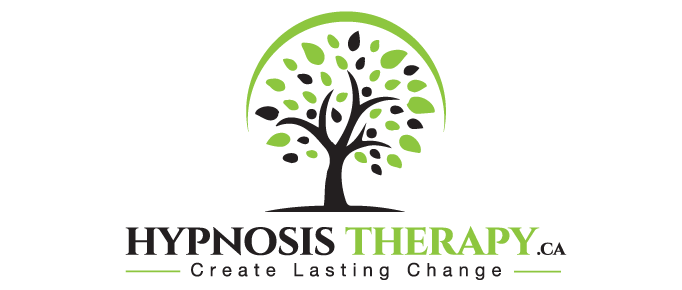
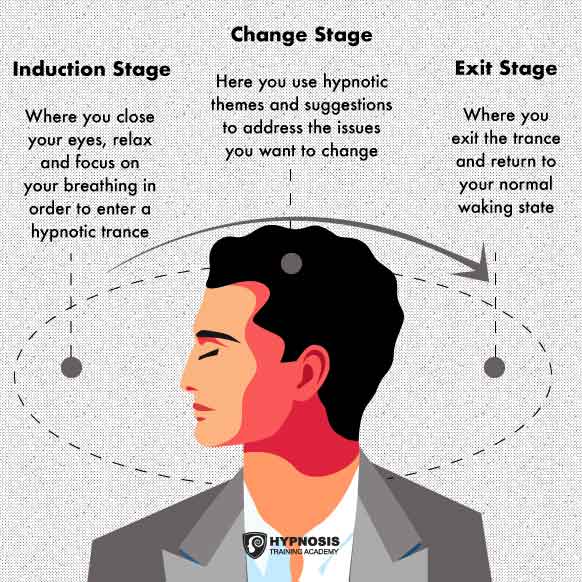
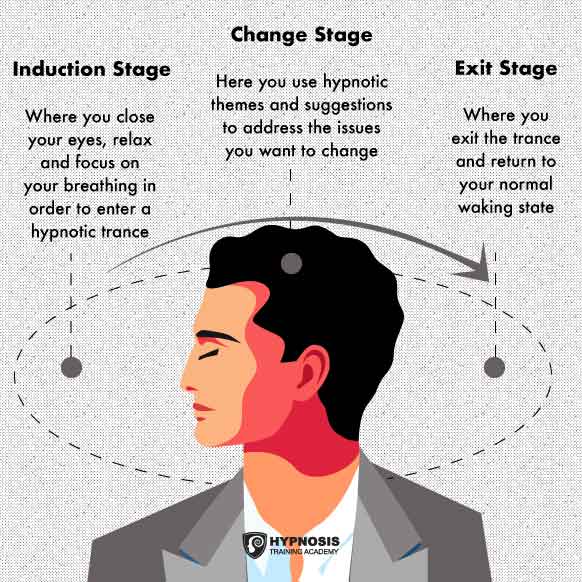
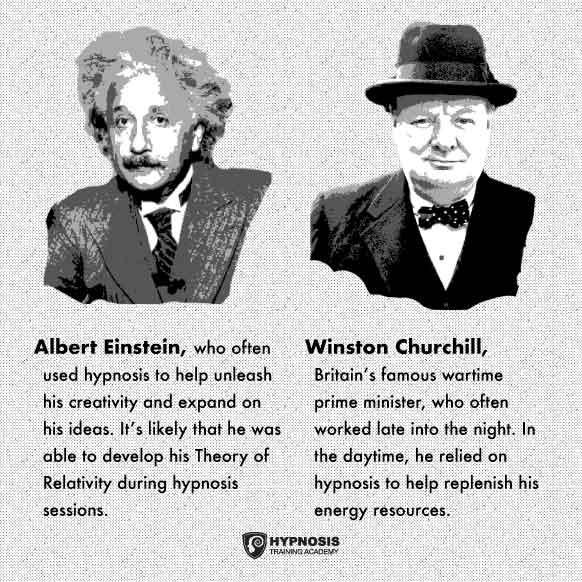


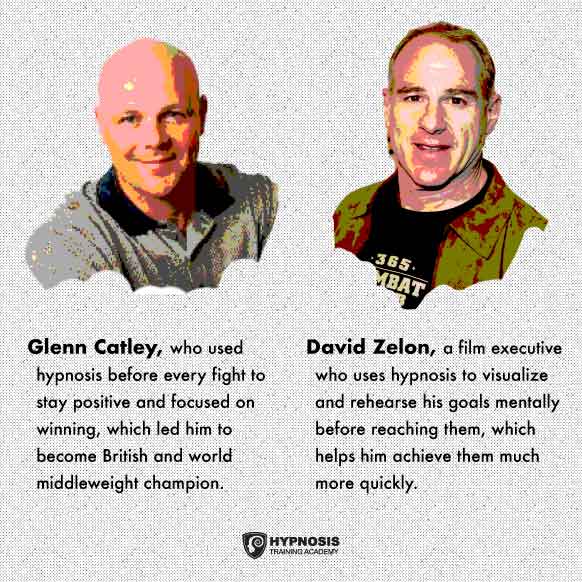

Leave A Comment
You must be logged in to post a comment.